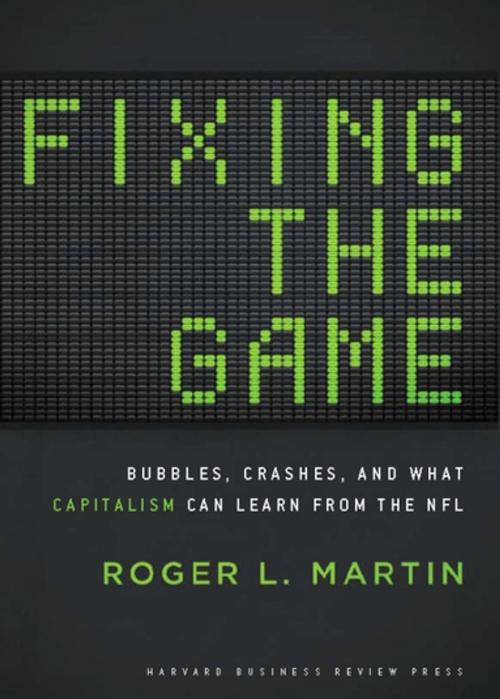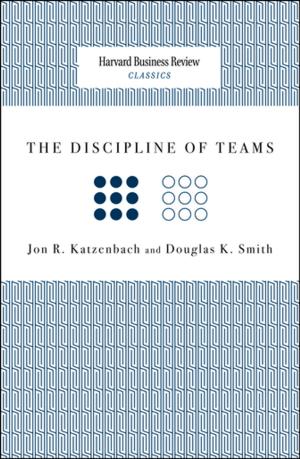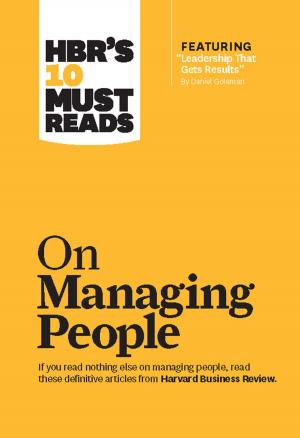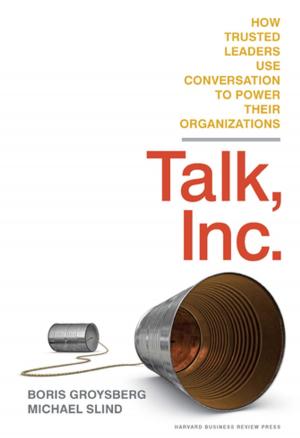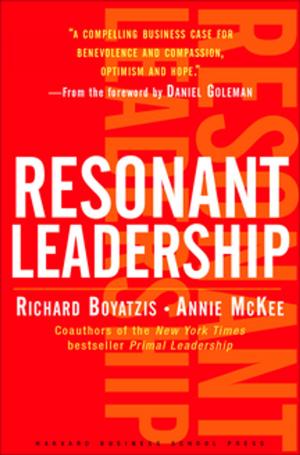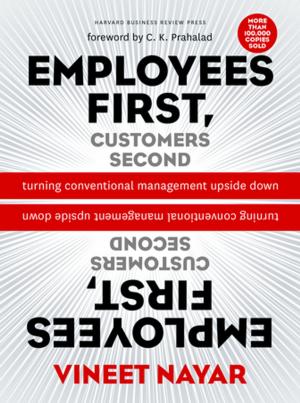Fixing the Game
Bubbles, Crashes, and What Capitalism Can Learn from the NFL
Business & Finance, Management & Leadership, Management| Author: | Roger L. Martin | ISBN: | 9781422142684 |
| Publisher: | Harvard Business Review Press | Publication: | April 12, 2011 |
| Imprint: | Harvard Business Review Press | Language: | English |
| Author: | Roger L. Martin |
| ISBN: | 9781422142684 |
| Publisher: | Harvard Business Review Press |
| Publication: | April 12, 2011 |
| Imprint: | Harvard Business Review Press |
| Language: | English |
American capitalism is in dire straits, caught in a perilous pattern of increasing volatility, decreasing investor returns, and ongoing bad behavior by executives. And it’s getting worse. Since the turn of the twenty-first century, we’ve seen two massive value-destroying market meltdowns and a string of ethics breaches, including accounting scandals, options-backdating schemes, and the subprime mortgage debacle.
Just what is going on here? Is it the inevitable decline of the American economy? Is it the new normal in a technology-enabled global marketplace? Or is it possible that the very theories we’ve embraced to underpin our capital markets are actually producing these crises?
In Fixing the Game, Roger Martin reveals the culprit behind the sorry state of American capitalism: our deep and abiding commitment to the idea that the purpose of the firm is to maximize shareholder value. This theory has led to a massive growth in stock-based compensation for executives and, through this, to a naive and wrongheaded linking of the real market-the business of designing, making, and selling products and services-with the expectations market-the business of trading stocks, options, and complex derivatives. Martin shows how this tight coupling has been engineered and lays out its results: a single-minded focus on the expectations market that will continue driving us from crisis to crisis-unless we act now.
Using the National Football League as his primary example, Martin illustrates that it is possible to take a much more thoughtful and effective approach than we now do to the intersection of the real and the expectations markets and to governance in general in the capital markets. Martin shows how we can act to end the destructive cycle, including:
Restructuring executive compensation to focus entirely on the real market, not the expectations market
Rethinking the meaning of board governance and role of board members
Reining in the power of hedge funds and monopoly pension funds
Concise, hard-hitting, and entertaining, Fixing the Game advocates seizing American capitalism from the jaws of the expectations market and planting it firmly in the real market-and it presents the steps we must take now to do so.
American capitalism is in dire straits, caught in a perilous pattern of increasing volatility, decreasing investor returns, and ongoing bad behavior by executives. And it’s getting worse. Since the turn of the twenty-first century, we’ve seen two massive value-destroying market meltdowns and a string of ethics breaches, including accounting scandals, options-backdating schemes, and the subprime mortgage debacle.
Just what is going on here? Is it the inevitable decline of the American economy? Is it the new normal in a technology-enabled global marketplace? Or is it possible that the very theories we’ve embraced to underpin our capital markets are actually producing these crises?
In Fixing the Game, Roger Martin reveals the culprit behind the sorry state of American capitalism: our deep and abiding commitment to the idea that the purpose of the firm is to maximize shareholder value. This theory has led to a massive growth in stock-based compensation for executives and, through this, to a naive and wrongheaded linking of the real market-the business of designing, making, and selling products and services-with the expectations market-the business of trading stocks, options, and complex derivatives. Martin shows how this tight coupling has been engineered and lays out its results: a single-minded focus on the expectations market that will continue driving us from crisis to crisis-unless we act now.
Using the National Football League as his primary example, Martin illustrates that it is possible to take a much more thoughtful and effective approach than we now do to the intersection of the real and the expectations markets and to governance in general in the capital markets. Martin shows how we can act to end the destructive cycle, including:
Restructuring executive compensation to focus entirely on the real market, not the expectations market
Rethinking the meaning of board governance and role of board members
Reining in the power of hedge funds and monopoly pension funds
Concise, hard-hitting, and entertaining, Fixing the Game advocates seizing American capitalism from the jaws of the expectations market and planting it firmly in the real market-and it presents the steps we must take now to do so.
